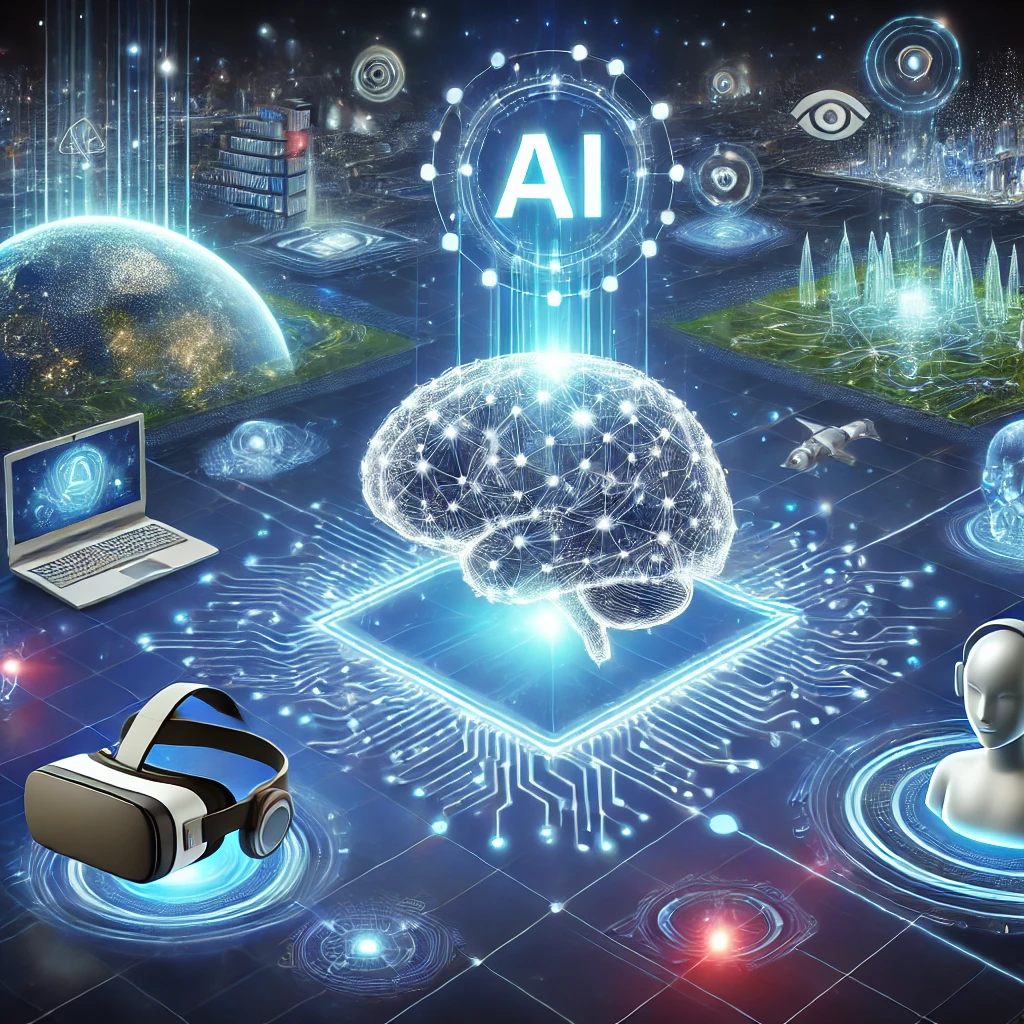The metaverse and virtual reality (VR) are revolutionizing how we interact, work, and play in digital spaces. AI is at the core of these advancements, enabling intelligent interactions, realistic simulations, and personalized experiences. This article explores AI’s impact on the metaverse and VR, along with its future potential.

Understanding the Metaverse and VR
The metaverse is a vast digital ecosystem integrating augmented reality (AR), VR, and blockchain to create immersive experiences. Users can socialize, work, and conduct business in a persistent digital environment. VR, on the other hand, creates a simulated world where users interact via VR headsets and controllers.
How AI Powers the Metaverse and VR
1. Enhancing Realism with AI-Powered Graphics
AI-driven deep learning and generative adversarial networks (GANs) create high-resolution textures, lifelike animations, and realistic physics. AI-based rendering adapts to user interactions and computing power, ensuring immersive VR experiences.
2. Intelligent NPCs and Virtual Assistants
AI-powered non-player characters (NPCs) and virtual assistants provide dynamic, responsive interactions. These AI entities learn from user behavior, adapt responses, and enhance engagement in virtual spaces.
3. Personalized User Experiences
Machine learning algorithms analyze user preferences to curate content, suggest activities, and tailor environments, ensuring more engaging and user-centric experiences.
4. AI Driven Avatars and Digital Identity
AI enables hyper-realistic avatars by capturing facial expressions, voice, and gestures. This technology allows avatars to mimic human emotions, improving social interactions in the metaverse.
5. Procedural Content Generation
AI automates content creation, generating landscapes, buildings, and interactive elements in real time. This technology helps developers build expansive, unique virtual worlds efficiently.
6. AI-Powered Virtual Economy and Blockchain Integration
AI predicts market trends, manages digital assets, and detects fraud in the metaverse’s virtual economy. It also optimizes blockchain-based smart contracts and decentralized finance (DeFi) models.
7. Natural Language Processing (NLP) for Communication
AI-driven NLP enhances human-computer interactions, enabling real-time language translation and seamless cross-cultural communication, fostering inclusivity in digital spaces.
8. AI in Virtual Reality Training and Education
AI-driven VR simulations offer adaptive learning environments for medical professionals, pilots, and engineers. AI-powered virtual tutors assess progress and personalize learning experiences for better retention.
9. Ethical AI and Safety in the Metaverse
AI monitors and mitigates cyber threats, harmful content, and online harassment, ensuring safer virtual environments. Responsible AI practices are crucial for ethical and secure digital interactions.
Challenges and Future of AI in the Metaverse and VR
While AI enhances the metaverse, challenges such as computational limitations, data privacy, and ethical concerns persist. However, continuous AI advancements promise even more immersive and intelligent virtual experiences.
Future Prospects
- AI-driven brain-computer interfaces (BCIs) enabling users to control virtual environments with thoughts.
- Advanced AI-generated simulations creating near-indistinguishable virtual worlds.
- Integration of AI, IoT, and 5G for seamless, real-time interactions in the metaverse.
Conclusion
AI is the foundation of the evolving metaverse and VR, enhancing digital experiences with intelligent interactions, procedural content, and personalized engagement. As AI technology advances, its role in the metaverse will expand, pushing us toward a seamless, AI-powered digital universe.
